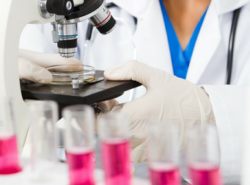
Artificial Intelligence to Improve Breast Cancer Screening
Published: 05/21/20 3:27 AM
Dr
Luke Marinovich
Project Description: Artificial intelligence (AI) could improve the accuracy and cost-effectiveness of mammograms. In this project, Dr Luke Marinovich (Curtin University, Perth) and his team will assess the use of AI in breast cancer screening, and its acceptability to the community.
Why this work is needed: Breast cancer screening currently involves radiologists reading mammograms to identify abnormal tissue for further assessment. However, up to 35% of cancers are missed at this screening phase. AI is a rapidly evolving form of technology that uses computer programs to read mammograms, potentially improving the accuracy of the test and reducing costs for our health system.
Expected outcomes: This project will provide information on the effectiveness and usability of AI in breast cancer screening. In particular, the research team is keen to know whether women will be comfortable with AI being used to assess their mammogram. This comprehensive study will also provide an economic evaluation of the technology, to compare the costs of implementing AI against it benefits.
Project details
It has been shown in many scenarios that computer programs can be trained to identify patterns as effectively, or even more effectively, than humans. Given that up to 35% of breast cancers are not detected when a human looks at a mammogram, there is the potential for improvement in our screening processes.
Firstly, the researchers will perform a “head-to-head” comparison of AI and human readers on 110,000 mammogram images (taken from the BreastScreen WA database; 2013-2016), to determine the accuracy of the AI algorithm. The researchers hope to show that AI is at least as accurate as human readers, and can detect cancers that progress to become life-threatening but may otherwise be missed.
Even if the AI technology is shown to work well for reading mammograms, it is important for screening programs to know the economic costs of using AI. The researchers will use the results of the comparison study to understand whether using AI will be more or less costly than current screening processes, and whether any extra costs are outweighed by the benefits AI technology brings.
Finally, little is known about how the community perceives AI for breast cancer screening. This is an important gap in our knowledge, as public trust is crucial to ensuring that screening programs continue to be successful. As such, the researchers will complete a study investigating the perspectives and preferences on AI in breast cancer screening from Australian women. This will help shed light on whether and how AI can be used in ways that are acceptable to the community.
